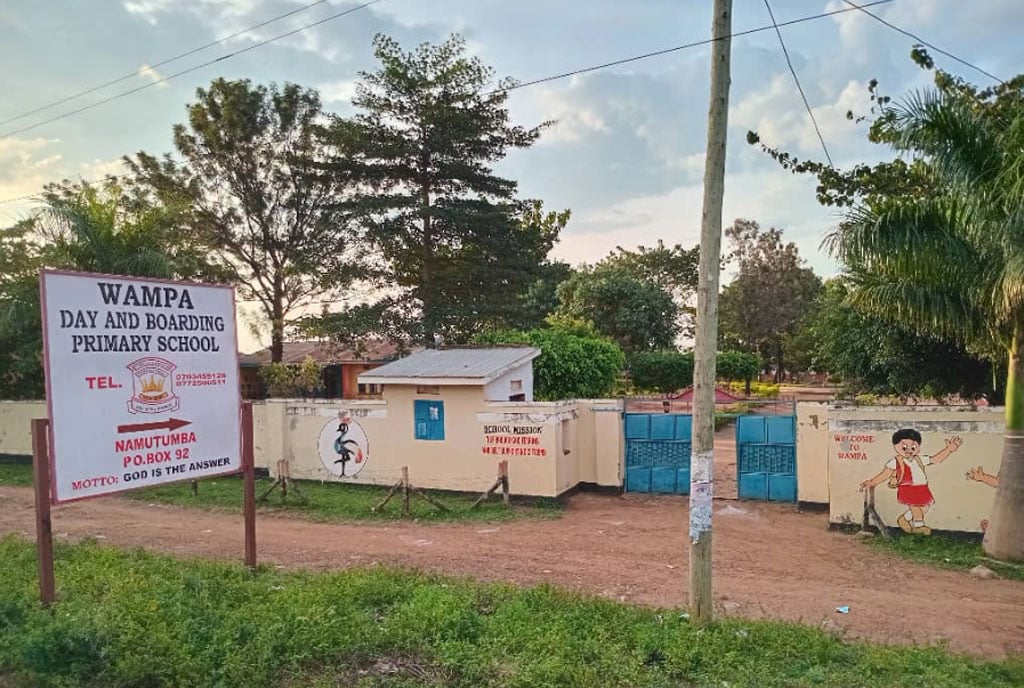Prime
Makerere, private firm sign deal to make anti-tick vaccine

Livestock dealers in Lwemiyaga cattle market, Sembabule District, on December 20, 2019. Researchers note that the anti-tick vaccine will improve the health of livestock. PHOTO / WILSON KUTAMBA
Makerere University has partnered with a private company to produce an anti-tick vaccine created by researchers at the College of Veterinary Medicine, Animal Resources and Bio-Security.
Alfasan Uganda Ltd is expected to develop the vaccine for commercial production while Makerere University will retain the patent rights.
While signing the Memorandum of Understanding between both parties on Friday, Dr Margaret Saimo Kahwa, the principal investigator from the College of Veterinary Medicine, said Uganda is being ravaged by ticks that are resistant to available acaricides.
Dr Saimo said farmers are losing cattle and other livestock due to tick-borne diseases which account for up to 70 per cent of cattle mortality, thus threatening the current national herd at 15 million.
She also said the vaccine will reduce loss and the high cost of acaricides.
“We developed this anti-tick vaccine using proteins identified from local ticks to be used as part of the packages in the control of ticks and tick borne diseases. This vaccine will reduce the burden of ticks and improve the health and well-being of livestock ,” Dr Saimo said.
She said the vaccine is being used in Austria and has already been adopted in Juba, South Sudan.
Dr Stephen Birungi, the managing director of Alfasan Uganda Ltd, said the preclinical trials have been concluded by scientists at Makerere and the product is now going into the final process of clinical trial.
“Production of this product is going to migrate to our facility in Namanve in order to comply with National Drug Authority (NDA) requirement of good manufacturing practice,” Dr Birungi said.
“Once this process is concluded and after approval by NDA, the anti-tick vaccine will be ready for use by farmers by the end of this year if all goes as planned,” he added.
He said once the vaccine is ready, a farmer will spend about Shs10,000 to immunise his or her cow annually, a cost lower than Shs1m that a farmer has been using on acaricides annually.
Prof Barnabas Nawangwe, the Makerere Vice Chancellor, said once production starts, they will agree with the producer on what percentage the university will take.
Prof Nawangwe urged lecturers to engage in innovative activities to get more earning as opposed to striking, saying they earn them more money.
The funding of the project is expected to come from President Museveni’s initiative for scientists.
Meanwhile, the Ministry of Finance has not released Shs2.2b which was approved by Parliament in February to kick-start local production of test batches of anti-tick vaccine.
“The production was supposed to start on Saturday but [Ministry of] Finance has not released the money. We expected it to be released by the end of last month but they have not,” Dr Saimo said, adding that production of vaccines for clinical trial will start now.
“Before they give you a licence, you have to do the clinical trial. Everything must be produced following good manufacturing practices.”
Dr Saimo said the field trial will be done in Ngoma in Nakeseke District.
“This is the last trial from which we will get a licence from the National Drug Authority so that we can commercialise the vaccine. We plan to sell the vaccine at Shs3,000 to 5,000 per dose,” she said.
When asked about the money, Mr Jim Mugunga, the Finance ministry spokesperson, said: “I don’t know [whether or not the money was released]. But that question should go to the accounting officer of the university.”
Mr Keith Muhakanizi, the ministry’s Permanent Secretary, could not be reached by press time.



